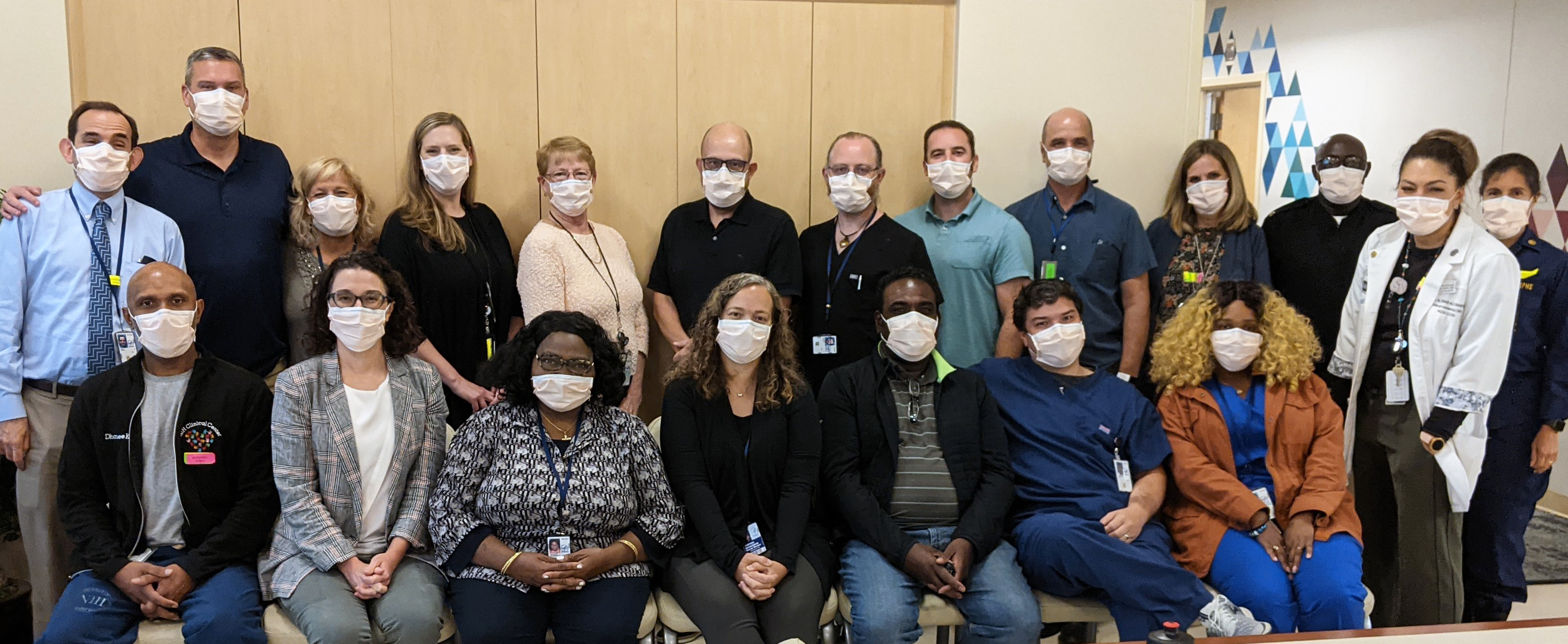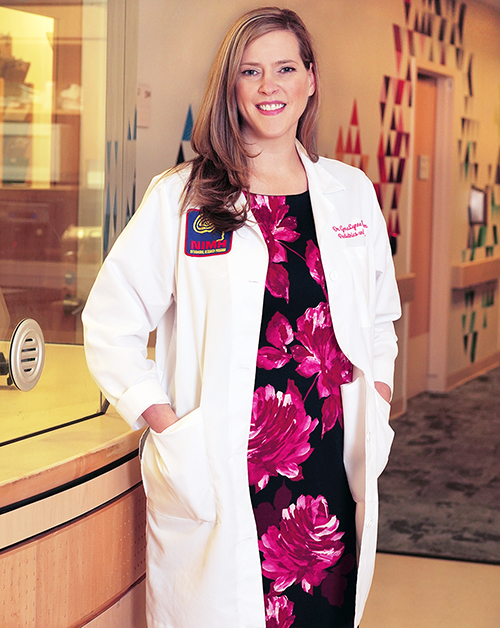These complex patients were being screened out; now they’re being screened in
New Autoimmune Brain Disorders Program highlights patient inclusion and interdisciplinary collaboration


Typical teenagers can appear to be riding an emotional roller-coaster - happy one day, sad the next. But something is different this time. They start to get easily confused and sometimes paranoid. They can’t focus or sleep and start to act out in inappropriate ways. For parents of kids with autoimmune brain diseases, this reality is all too familiar.
Autoimmune brain diseases, including autoimmune encephalitis and central nervous system (CNS) vasculitis, refers to a group of conditions that occur when the body's immune system mistakenly attacks healthy brain cells. According to the Genetic and Rare Diseases Information Center, which is supported by the National Center for Advancing Translational Sciences, this can cause various neurologic and/or psychiatric symptoms such as impaired memory and cognition, abnormal movements, seizures, problems with balance, speech or vision and psychiatric symptoms like psychosis, aggression, panic attacks, compulsive behaviors, euphoria or fear.
Symptoms may vary and can progress over time, jeopardizing the safety of those affected and sometimes progressing to a loss of consciousness or coma.
Many patients with autoimmune brain disorders may be perceived as “too sick” for a traditional psychiatry inpatient unit and “too psychiatrically complex” for a general pediatric unit. In the past, many studies excluded this group of patients from research leaving them very few options for care or to find out more about their illness.
Now, a new team within the Clinical Center will be able to serve pediatric patients with this condition. The National Institute of Mental Health (NIMH) Autoimmune Brain Disorders Program officially launched in the 1SW unit under the leadership of Medical Director Dr. Gena Mooneyham, a pediatrician and child psychiatrist by training.
This project needed to obtain permission from several departments, including the leadership of the Clinical Center’s Nursing Department and the NIH Clinical Center’s Patient Safety Office. To ensure hospital staff could safely care for these patients, some physical changes were made in the Autoimmune Brain Disorders unit. For example, one of the patient care rooms was converted into a procedure room capable of accommodating video EEG and sleep studies. Some medical equipment was strategically built into walls behind safety access panels and staff were trained on the use of other types of portable equipment so that it could be stored safely when not in patient use.
This effort required months of interdisciplinary planning, which blossomed out of a collaboration between Dr. Avindra Nath, the Clinical Director for National Institute of Neurological Disorders and Stroke (NINDS) and Dr. Maryland Pao, the Clinical Director for NIMH. Since then, it has extended across all aspects of the day-to-day patient care and the development of their translational research portfolio.
To provide care for the unit’s patients, crossover training was necessary to bridge the gap between pediatrics, neurology and psychiatry. After a needs assessment was conducted, the Pediatric Psychiatry nurses then completed a 16-week curriculum which began in May of 2021 with educational experiences curated and facilitated by nurses from Neurology and Pediatrics. Essentially, the nursing team members had to receive additional clinical training in patient care from a general pediatric and neurology perspective.
Nurse Educators Myra Woolery, Rosa Roseau and Chris Gagnon worked together with Registered Nurse Andrew Nyabwari and Clinical Nurse Manager Tom Houston, to develop and implement a new interdisciplinary curriculum for the nursing team. This joint collaboration proved invaluable with the unit’s launch, according to Mooneyham.
Patients do not ordinarily have the ability to receive intravenous infusions or oxygen support in designated behavioral health spaces and they often need to be transferred out to a general pediatric unit. However, Autoimmune Brain Disorders Program staff received extensive training on the safe administration of IV infusions and oxygen support and use a simulation learning space on the unit to facilitate ongoing training. The wall panels house oxygen and suction equipment behind a safety panel and all other equipment was intentionally selected so that it could be “brought in” and “taken out” as needed, different from the standard inpatient room at the Clinical Center.
According to Houston, the staff greatly appreciated the willingness of team members to share their expertise as they learned the necessary skills to take care of these patients.
“This whole effort would not have been possible without the extraordinary leadership and guidance of Dr. Mooneyham. She has been an advocate for us every step of the way, either through providing education herself or by bringing in former nursing colleagues for virtual group discussions who have been through a similar transition,” said Houston.
Dr. Gena Bergvall, an Advanced Practice Nurse - Clinical Nurse Specialist and Nurse Practitioner for Neuroscience Nursing, was also instrumental in the curriculum development and directly involved in the first patient admitted in July 2021 as a joint initiative with the Neurology unit.
Bergvall explained, “As nurses and health care practitioners, we sometimes rely on the comfort of our specialty and may not see beyond the patient’s primary diagnosis. This collaboration is an example of when nurses went beyond their specialties (behavioral health and neuroscience) to develop a holistic plan of care, truly customized to the patient’s needs.”
“Dr. Mooneyham respected the nurses' feedback and utilized a shared knowledge and decision approach as measured by consistent and efficient daily patient rounds. This shared mutual respect empowered the nursing teams to participate in decision-making,” she added.
Mooneyham emphasized that the nursing collaboration between Pediatrics, Neurosciences and Behavioral Health has been a critical component to their success. It highlights the inclusion of a patient population that was previously excluded, as well as interdisciplinary collaboration.
“It has been a joy and privilege to get to see everyone coming together across specialties,” she said.
- Debbie Accame